Xavier Conlan 
Xavier grew up on a sheep farm outside Ballan (Victoria Australia) where he honed his initial scientific research in pyrolysis. Xavier went on to study a bachelor of Applied Science (Applied Chemistry Hons) at RMIT University before completing a PhD in Analytical Chemistry within the Surface Analysis Research Centre at the University of Manchester (UK). Returning to Australia Xavier took up a post doctoral fellowship with Professor Neil Barnett at Deakin University and has enjoyed various roles including his current position as Associate Professor of Forensic Chemistry and Associate Head of School (Teaching and Learning). Xavier considers himself fully qualified to deliver ‘dad jokes’ within his lecturing which have been developed in collaboration with his four children. When not in the office Xavier is most likely to be found riding a bike some where in the East Otway Ranges. 

Post-Doctoral Fellows
 Bianca Szkuta
Bianca Szkuta
Dr Bianca Szkuta is an Industry Postdoctoral Research Fellow at Deakin University working in collaboration with the Victoria Police Forensic Services Department (VPFSD). In November 2017, she completed her PhD at Deakin University, also in collaboration with the VPFSD, investigating the variables affecting the transfer and persistence of DNA in various forensically relevant scenarios. She holds a Bachelor of Forensic Science (Honours) degree with a major in Forensic Biology. Bianca is a long-term member of various forensic societies, including the Australian and New Zealand Forensic Science Society (ANZFSS) for which she is also part of the Victorian Branch Committee. She has attended and presented at multiple national and international conferences, has published papers in key forensic journals and has co-authored a book chapter. Her current postdoctoral work expands on her previously published research on DNA transfer, with an end goal of delivering information and data that enables forensic experts to provide more accurate likelihood assessments of DNA transfer in various scenarios.
Visiting Fellow
Professor Binling Zhu
The forensic science team have the pleasure of welcoming a visiting scholar Professor Binling Zhu from the Fujian Police College in China. Professor Zhu is working with the team for 12 months as part of the China Scholarship Council (CSC). Professor Zhu is the Director of Forensic medicine and Toxicology Office, Department of Forensic Science. Her work with the team has been focussed on illicit substance determination with gas chromatography mass spectrometry and has lead to key findings in monitoring ephedrine in clandestine laboratories, new psychoactive piperazine derivatives and ketamine analysis in the environment. Her contribution has led to some key joint manuscripts in these areas.
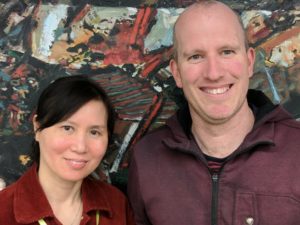 Professor Binling Zhu and Associate Professor Xavier Conlan
Professor Binling Zhu and Associate Professor Xavier Conlan
Professor Zhu has research interests in forensic toxicology and forensic chemistry which align well with the team at the Waurn ponds campus. Professor Zhu focusses on drug and poison detection in biological fluids for application towards criminal investigations. Professor Zhu have contributed to more than 2000 cases about the illicit manufacture of drugs and deaths associated with drug misuse. Professor Zhu teaching into her home institutions forensic chemistry and toxicology programs and is looking forward to seeing the teaching in action at Deakin over her tenure. Professor Zhu is hoping to speak with staff to see if any collaborations in research and teaching may be built upon while she is enjoying her time in Australia.
Professor Zhu’s home campus
https://www.lecamps.org.cn/f/detail-FujianPoliceCollege
Current HDR Students
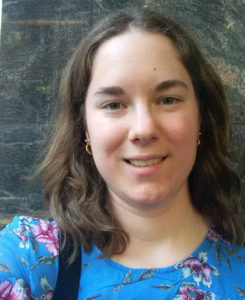 Aliya Tierney
Aliya Tierney
‘Targeted monitoring of opiate process streams and elucidation of new products’
Aliya completed her undergraduate honours degree at Deakin University with a project the developed chemical fingerprints of methamphetamine samples of forensic importance. Her PhD program is an industry linked collaboration with Sun Pharmaceuticals who are manufacturers of licit opiates. Aliya is continuing a long standing collaboration with the Port Fairy facility who were previously under the ownership of GlaxoSmithKline. Aliya is working closely on using multidimensional chromatography to fully realise the potential of the opiate processing streams with a focus on identifying new compounds and those of interest to the real time monitoring of the facility. Aliya has a strong profile outside of Deakin university where she is heavily involved in public works through Rotary.
 Deborah Hughes
Deborah Hughes
‘An investigation into the substrate variables impacting DNA transfer in forensic casework’
Debbie completed her undergraduate honours degree at Deakin University with a project highlighting the importance of substrate interactions on bodily fluids relevant to case work. The highlights of this work will be presented at the upcoming IAFS conference in May 2021. Her PhD program is being done in collaboration with the Victoria Police Forensic Services Department and she is working closely with here industry supervisory team led by Dr Roland van Oorschot. Debbie is the research groups lead surface scientist and she has built expertise in AFM, Raman and SEM to date.
 Jake Penny
Jake Penny
‘Detection of chemoattractants from spawning marine invertebrates’
Jake completed his honours at Deakin University before spending time in the grain industry before returning to use his chromatography skills on an PhD project supported by and ARC Discovery project in collaboration with the University of Western Australia. The project will focusses on a recently described form of mate choice involving chemical signalling between eggs and sperm. This phenomenon, termed differential sperm chemotaxis, has only been described in mussels, but may represent a ubiquitous form of gamete-level sexual selection given the prevalence of sperm chemotactic signalling in animals and plants. The project aims to shed light on the biochemical and molecular basis of differential sperm chemotaxis in mussels, and the stability of gamete-level interactions under a range of environmental conditions. An understanding of the mechanistic basis of gamete choice in this system may provide fundamental insights into a poorly understood, but potentially ubiquitous, form of sexual selection.
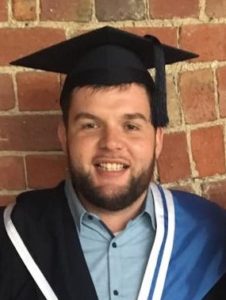 Mitchell Montgomery
Mitchell Montgomery
Mitch gained his BForensicSc. (Hons) majoring in Forensic Chemistry at Deakin University in 2017 and is currently 1st year PhD candidate at Deakin University. After completing research surrounding opiates in culinary poppy seeds for his honours Mitch has moved into research collaborating with the Victoria Police Forensic Services Department (VPFSD) surrounding the identification and profiling of other illicit substances and their impurities, such as methamphetamine. Mitch has been a member of the Australian and New Zealand Forensic Science Society (ANZFSS) since early in his undergraduate studies and has recently been appointed as the first Student member to join the General Committee of the ANZFSS Victorian Branch.
 Ashish Bedi
Ashish Bedi
Ashish is based in the TERI-Deakin Nanobiotechnology Centre in New Delhi India and is working on a project titled ‘Biostimulants from endophytic fungi: A novel approach for sustainable farming’. Endophytes are the microorganisms that live internally and remain asymptomatic for at least part of their life cycle. This project will focus on fungal endophytes as they represent a wide source of unexplored and uncharacterized microorganisms capable of producing novel metabolites. Moreover, endophytes generally show mutualistic behavior with their host and promote the growth of associated plants. Herein, the growth promotion ability of endophytes has been targeted as a measure prior to isolation of a pure compound from endophytic fungus that exhibits plant growth promoting activity. This research will promote environmentally friendly farming increasing the yield and quality of field crops.
 Rishu Kalra
Rishu Kalra
Rishu is based in the TERI-Deakin Nanobiotechnology Centre in New Delhi India and is working on a project titled ‘Secondary metabolites of Lichen as potential anticancer therapeutic agents’. Lichens are symbiotic organisms (associated with fungi and algae) usually occurring in the most adverse and varied geo-climatic circumstances made possible due to production of some unique secondary metabolites. Thus, Rishu’s project is exploring lichen species from various geographical locations for metabolite profiling followed by a bioassay guided isolation and identification of active secondary metabolites evaluation against cancer related systems.
Recent Graduates
Kim Quayle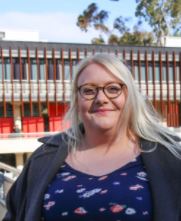
‘The Development of Lab-on-a-Chip Technology for the Detection of Equine Performance Enhancement’
Kim Quayle gained her BSc (Hons.) in Forensic Science from the University Of Central Lancashire (United Kingdom) in 2013, where she developed a keen interest in toxicology and analytical chemistry. These interests spurred Kim into undertaking her Masters degree, under the supervision of Dr Matthew Baker now of the University of Strathclyde, where she utilised spectroscopic techniques for the analysis of licit, illicit and niche tobacco. Kim was awarded her MSc (Res.) by the University of Central Lancashire in November 2014, for a thesis entitled “Elemental and Molecular Profiling of Licit, Illicit and Niche Tobacco”. Since the publication of this research, Kim has been requested to advise as an expert on technical documentation for communications to the European Anti-Fraud Office with regards to the tracing and monitoring of illicit tobacco.
In February 2015, Kim joined Deakin University as a PhD student situated within the microfluidics research group led by Professor Stephen Haswell. Throughout her PhD, Kim has worked with an array of bio luminescent, chemiluminescent and electro chemiluminescent techniques that are frequently utilised for analysis within lab-on-a-chip devices. Her doctorate degree has focused on the development of novel platforms for the trackside detection of equine performance enhancement, involving the scaling down and adaption of existing analytical techniques for use with non-invasive samples, whilst validating methodology with advanced analytical instrumentation. Her research contributed to the publication of several journal articles in respected forensic and analytical chemistry journals.
Currently working for the Institute for Frontier Materials, Deakin University
Ashton Theakstone 
‘Innovative separation and detection protocols for compounds of pharmaceutical and forensic importance’
Ashton completed her honours in forensic chemistry at Deakin University before continuing on with a PhD. Ashton works on a project developing key analytical chemistry protocols for illicit drug detection spectroscopic detection post column chromatography. She has delved into selective detection of synthetic cannabinoids and amphetamines with chemiluminescence reagents. She has used synthetic cannabinoids to gain a better understanding the fundamental processes behind electro-chemiluminescene as a tool for drug detection. Further she has investigated the substrate effects and how they can be best used for the direct determination of synthetic cannabinoids with Raman and solid state nuclear magnetic resonance spectroscopy. When not in the lab Ashton keeps a close eye on the progress of Derby County Football Team.
Currently working as a post doctoral fellow at the University of Strathclyde UK
 Lawrence Webb
Lawrence Webb
‘Improving medical tropane production in Australian plantations’
Lawrence completed his honours in forensic arson investigations in conjunction with the Victoria Police Forensic Services Department and Deakin University. Lawrence is now working on an industry based PhD program with Alkaloids Australia where he is focusing on using advanced chromatography, chemiluminscence detection, mass spectrometry to help understand the genetic profiling of his plants of interest. This is pursued in order to better understand and improve the medical tropane production in a significant Australian industry. Lawrence spends significant time in the field and as such is considered a local in the township of Kingaroy (Queensland).
Currently working with the Australian Rickettsial Reference Laboratory and Deakin University as a post doctoral fellow
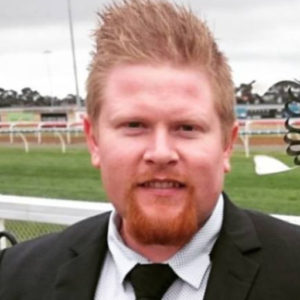 Luke Andrighetto
Luke Andrighetto
Luke successfully completed his PhD program with the team on ‘Platform Technology towards chemical fingerprinting of methamphetamine from ephedrine pathways’ and has gone on to work with the Victoria Police Forensic Services Department Regional hub in Ballarat.
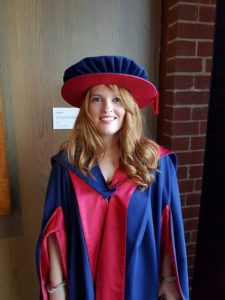 Niki Burns
Niki Burns
Niki successfully completed his PhD program with the team on ‘Identification and Isolation of Drugs in Complex Samples’ in collaboration with the Victoria Police Forensic Services Department and Sun Pharmaceuticals. Niki has gone on to work with the Victoria Police Forensic Services Department Regional hub in Ballarat.
